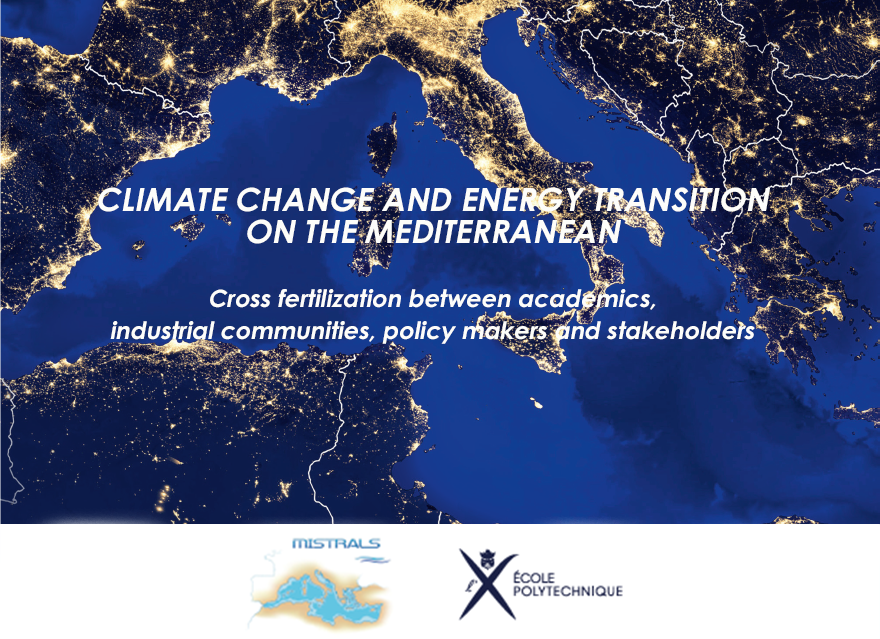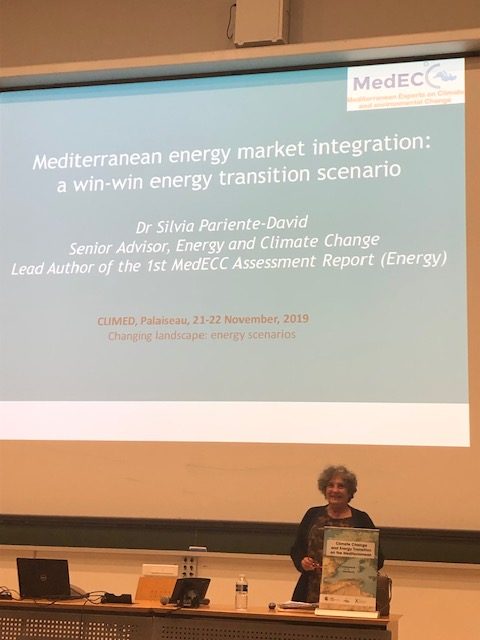 The Mediterranean region is a hot spot of climate change, dominated by a significant warming, a sharp decrease in average annual rainfall, and an increase in the probability of occurrence of flood- and drought-prone events. The Mediterranean region is under pressure from significant increase in the population and its quality of life. Current economic practices and policies primarily follow conventional development models that result in higher emissions, the depletion of natural resources, growing ecological deficits and the externalization of social and environmental impacts. This pressures contributes to the over-exploitation of already scarce water resources and to an increase in energy demand for which supply is not always ensured. A long-term strategy is required to support sustainable economic growth while at the same time improving living conditions, social equity and preserving the environment. Energy generation must evolve toward sustainable trajectories in the Mediterranean.
The Mediterranean region is a hot spot of climate change, dominated by a significant warming, a sharp decrease in average annual rainfall, and an increase in the probability of occurrence of flood- and drought-prone events. The Mediterranean region is under pressure from significant increase in the population and its quality of life. Current economic practices and policies primarily follow conventional development models that result in higher emissions, the depletion of natural resources, growing ecological deficits and the externalization of social and environmental impacts. This pressures contributes to the over-exploitation of already scarce water resources and to an increase in energy demand for which supply is not always ensured. A long-term strategy is required to support sustainable economic growth while at the same time improving living conditions, social equity and preserving the environment. Energy generation must evolve toward sustainable trajectories in the Mediterranean.
The workshop “Climate change and the energy transition on the Mediterranean” was held from 21 to 22 November 2019 in Palaiseau (near Paris), France. It was organized by ’École polytechnique. It was supported by MISTRALS (Mediterranean Integrated Studies at Regional And Local Scales), an interdisciplinary research program led by CNRS in association with ADEME, CEA, IFREMER, INRA, IRD, IRSTEA and Météo-France.
The objective of the workshop was to bring a cross-look research, industrial, public authorities on an implementation of a sustainable energy transition and compatible with international negotiations.
Objectives: i) Identify the main challenges in the years ahead; ii) contribute in the marketplace of ideas, iii) discuss potential sustainable solutions.
During this workshop the MedECC was presented by one of its coordinators, Dr Joel Guiot (CEREGE, CNRS). One of the Lead Authors of the “Energy” chapter of the 1st Mediterranean Assessment Report (MAR1), Dr Silvia Pariente-David gave the presentation on “Mediterranean energy market integration: a win-win energy transition scenario”.

